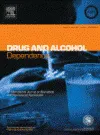| Titre : | Methamphetamine use: A comprehensive review of molecular, preclinical and clinical findings (2013) |
| Auteurs : | W. J. PANENKA ; R. M. PROCYSHYN ; T. LECOMTE ; G. W. MacEWAN ; S. W. FLYNN ; W. G. HONER ; A. M. BARR |
| Type de document : | Article : Périodique |
| Dans : | Drug and Alcohol Dependence (Vol.129, n°3, May 2013) |
| Article en page(s) : | 167-179 |
| Langues: | Anglais |
| Discipline : | PRO (Produits, mode d'action, méthode de dépistage / Substances, action mode, screening methods) |
| Mots-clés : |
Thésaurus mots-clés METHAMPHETAMINE ; TOXICITE ; MECANISME D'ACTION ; COGNITION ; EFFET SECONDAIRE ; PHYSIOLOGIE ; NEUROBIOLOGIE ; ANALYSE CHIMIQUE ; AMPHETAMINES ; PHARMACOCINETIQUE ; TRAITEMENT |
| Résumé : | Methamphetamine (MA) is a highly addictive psychostimulant drug that principally affects the monoamine neurotransmitter systems of the brain and results in feelings of alertness, increased energy and euphoria. The drug is particularly popular with young adults, due to its wide availability, relatively low cost, and long duration of psychoactive effects. Extended use of MA is associated with many health problems that are not limited to the central nervous system, and contribute to increased morbidity and mortality in drug users. Numerous studies, using complementary techniques, have provided evidence that chronic MA use is associated with substantial neurotoxicity and cognitive impairment. These pathological effects of the drug, combined with the addictive properties of MA, contribute to a spectrum of psychosocial issues that include medical and legal problems, at-risk behaviors and high societal costs, such as public health consequences, loss of family support and housing instability. Treatment options include pharmacological, psychological or combination therapies. The present review summarizes the key findings in the literature spanning from molecular through to clinical effects. |
| Domaine : | Drogues illicites / Illicit drugs |
| Sous-type de document : | Revue de la littérature / Literature review |
| Affiliation : | Department of Anesthesiology, Pharmacology & Therapeutics, University of British Columbia, Vancouver, British Columbia, Canada |
 Accueil
Accueil



